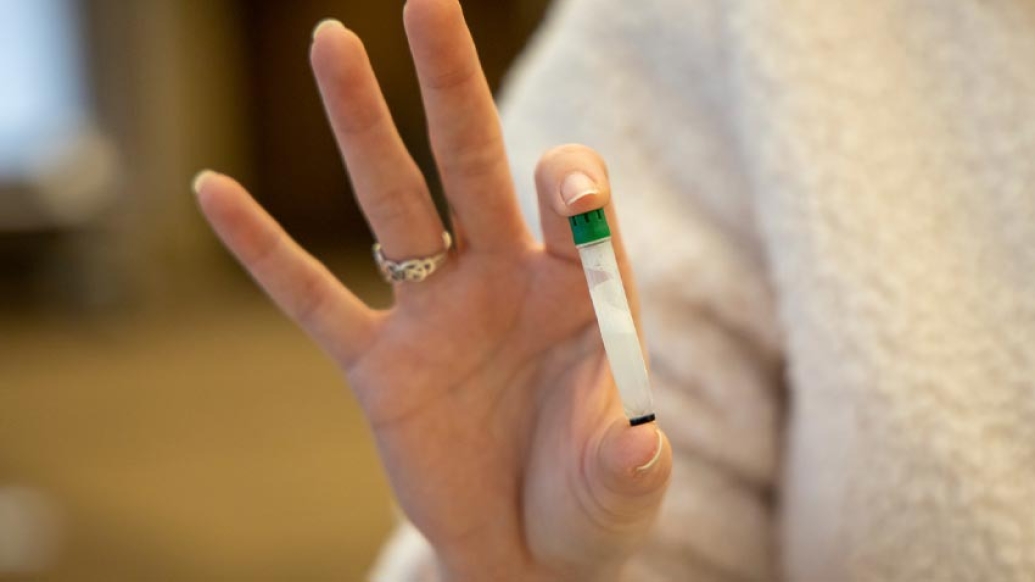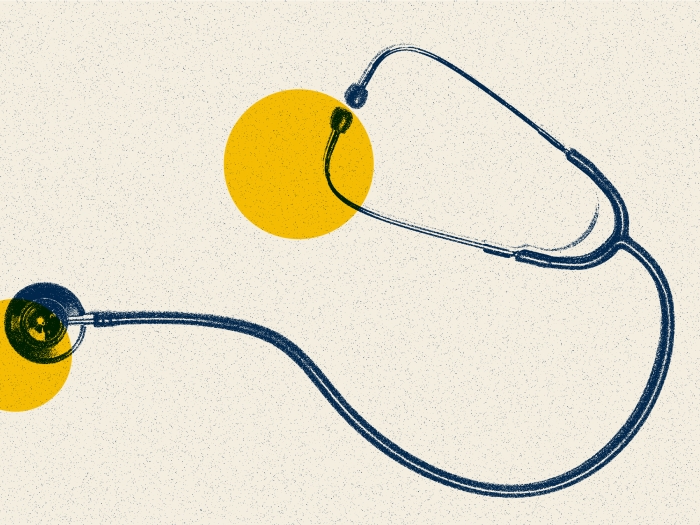New SARS-CoV-2 mutations in the U.K. and the U.S. have raised alarms. A Michigan expert weighs in.
3:12 PM
Author |

Editor's note: Information on the COVID-19 crisis is constantly changing. For the latest numbers and updates, keep checking the CDC's website. For the most up-to-date information from Michigan Medicine, visit the hospital's Coronavirus (COVID-19) webpage.
News reports abound about the fact that SARS-CoV-2, the virus behind the coronavirus pandemic, is mutating.
A new viral lineage which exploded in the U.K. late last year, and more recently in many areas of the U.S., called B.1.1.7, has many concerned that this new version is behind skyrocketing transmission rates.
In a recent summary in JAMA, Michigan Medicine's Adam Lauring, M.D., Ph.D., Associate Professor of Infectious Disease in the departments of Internal Medicine and Microbiology and Immunology, and Emma Hodcroft, Ph.D., of the University of Bern, Switzerland, summarize what the new variants of SARS-CoV-2 might mean for COVID spread, immunity and the vaccination effort.
MORE FROM THE LAB: Subscribe to our weekly newsletter
First, they note, mutations are typical for viruses, including RNA viruses like coronaviruses. Those that allow the virus to spread more easily will increase through natural selection. But mutations can also happen by chance alone. One of the earliest identified mutations of the spike protein in SARS-CoV-2, called 614G, may have benefitted from a chance event and does appear to allow the virus to spread more efficiently in animal models.
The B.1.1.7 lineage contains a mutation known as N501Y—the same mutation that is rapidly spreading in a different variant independently in South Africa. This mutation may make it easier for the virus to attach to the human ACE2 receptor, note Lauring and Hodcroft.
B.1.1.7 appears to have outcompeted other versions of the virus and is likely more transmissible, emphasizing the importance of maintaining the wearing of masks, social distancing and limiting gatherings.
SEE ALSO: Seeking Medical Care During COVID-19
Lauring also discusses the implications of these mutations in a recent JAMA podcast.
"I'm more concerned that if we have this variant that is able to spread better, we're going to need to be that much better at our public health measures to control it. And if we're not, we're going to see more cases," says Lauring, an expert on the biology of RNA virus evolution. "If we see more cases, we run the risk of overloading our health systems even more, and then even if the virus doesn't cause more fatalities, if you have more cases, you're going to have more critical illness and death."
He notes that it doesn't appear that the variant is more lethal, but time will tell if there are in fact differences in the severity of COVID-19 from B.1.1.7.
Historically, notes Lauring, the U.S. has lagged behind on genetic surveillance, but efforts are underway to improve the tracking of variants in the population.
His lab is currently involved in variant tracing and has sequenced 250 samples since January 1, including most positive COVID-19 samples at Michigan Medicine, all samples from the U-M Community Sampling and Tracking Program and samples from the Washtenaw County Health Department.
SEE ALSO: Keeping Our Patients Safe During COVID-19
On the subject of COVID vaccines, Lauring and Hodcroft note that "because current vaccines provoke an immune response to the entire spike protein, it is hoped that effective protection may still occur despite a few changes at antigenic sites in SARS-CoV-2 variants."
In fact, early, non-peer reviewed studies from BioNTech/Pfizer and Moderna find that their current mRNA vaccines do protect against the B.1.1.7 variant.
Paper cited: "Genetic variants of SARS-CoV-2 – What do they mean?" JAMA. DOI:10.1001/jama.2020.27124
Like Podcasts? Add the Michigan Medicine News Break on iTunes, Google Podcast or anywhere you listen to podcasts.

Explore a variety of healthcare news & stories by visiting the Health Lab home page for more articles.

Department of Communication at Michigan Medicine
Want top health & research news weekly? Sign up for Health Lab’s newsletters today!





